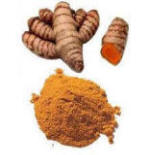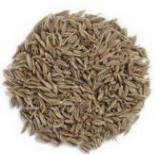Spice your life
😏cidpusa.orgTop Spices
Health guide
Curcumin or Turmeric page-1
Curcumin known as Turmeric or CURRY POWDER

First, a definition of curry is in order. People are often confused about exactly what curry is. Most often the name 'curry' is given to any spicy dish or blend of spices that has an Indian or eastern flavour. This definition, however, includes too many spicy dishes that taste absolutely nothing like each other. A good rule of thumb is that a curry is a dish containing sauteed garlic, onions (unless religion or culture forbids their use) and varying amounts of most of the following spices: turmeric, cumin, coriander, ginger, chilli, cardamom, black pepper, cloves, fenugreek, and fennel. Curry dishes are not of Indian or Asian origin but are the invention of curry houses and other restaurants to describe the general flavour of this kind of cuisine (for example, chicken tikka masala is unheard of in India). In fact, the combination of spices in these dishes changes from country to country and even from house to house. Their origin, however, does not diminish their incredible medicinal value.
Believe it or not, each ingredient of the common curry has a medicinal use. In fact each ingredient has been used for thousands of years to treat a variety of ailments from stomach cramps to throat infections (although some believe curry has caused more stomach cramps than it has cured). Also, be warned, those of European origin whose stomachs are used to tamer cuisine may also experience the laxative side effect of curry. Here are the basic ingredients of curry and each ingredient's medicinal action:
Garlic (Allium sativa)
The Egyptians made garlic beer to treat infections. Today we use it to lower cholesterol, as an antibiotic, to rid the body of excess mucus (the sulphur compounds in garlic break up mucus), and to stop platelets in blood from sticking together and creating blockages. Garlic has been used effectively against fungal, yeast, bacterial, and viral infections.
Onion (Allium cepa)
Onions have been used medicinally since the beginning of time. They can be consumed for their antibiotic properties (they are in the same plant family,Allium, as garlic and have most of the same medicinal actions). They can also be cooked and applied to the chest as a poultice for lung congestion.
Turmeric (Curcuma longa) Turmeric (Yellow)
Turmeric and several related species have been used in the IndianAyurvedic medical system to strengthen and warm the whole body. Traditional uses include: digestive aid, analgesic (due to the action of turmeric's main constituent, curcumin), antiseptic, expectorant and anti-inflammatory. This medicinal spice has also been studied for its anti-cancer properties.
Cumin (Cuminum cyminum)

The stems of this plant flavour many Vietnamese dishes and the strong-tasting seed is used in curry and Cajun seasoning. The seeds aid digestion and also relieve flatulence, colic and diarrhea. The whole plant acts as a tonic and mild stimulant. Its called Zira in India.
Continue to next page for info on curry powder spicesPlease read the benefits of Vitamin D & protect your family
😏